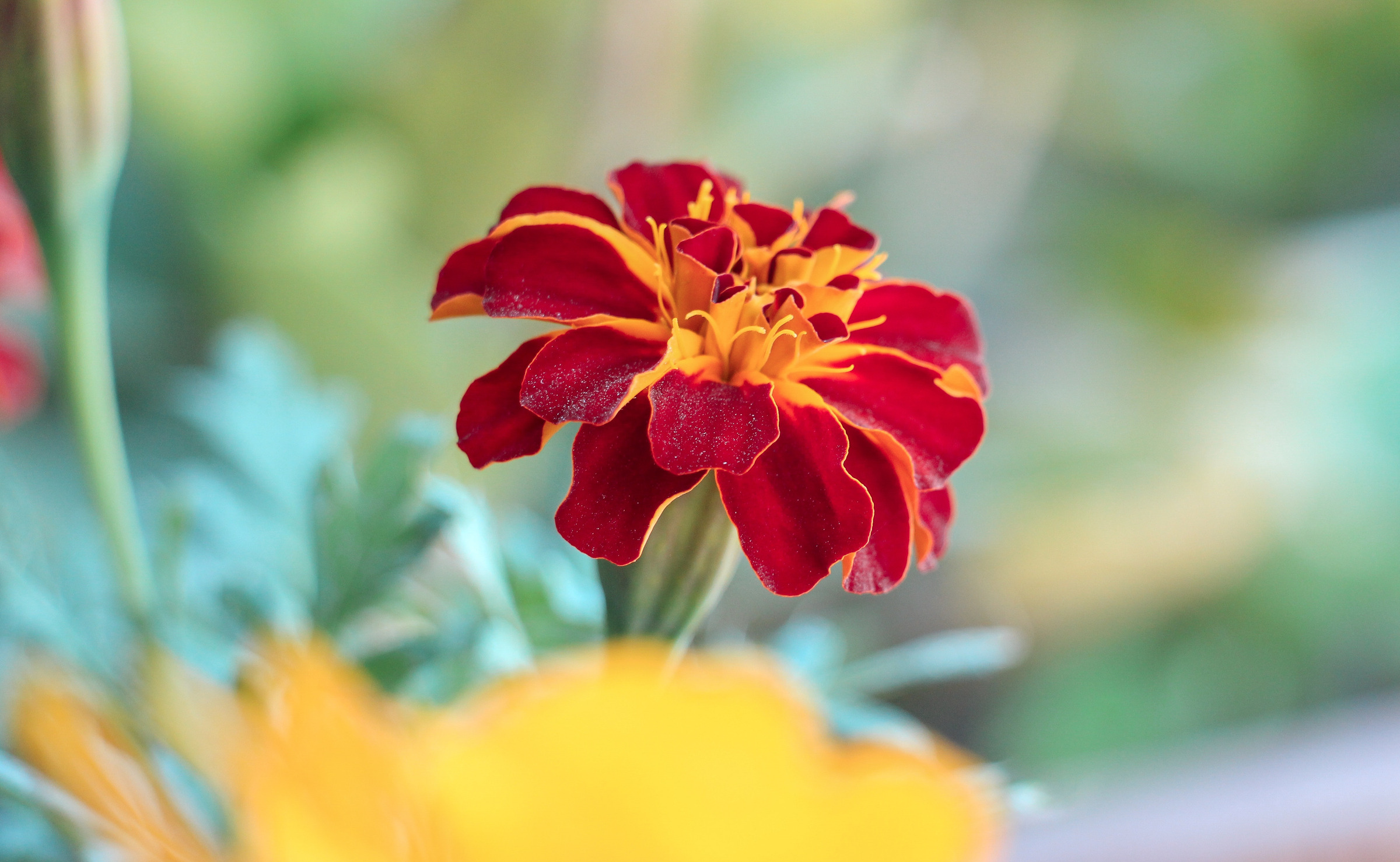Beauty & Benefits of the Marigold Jolly Jester Flowers
Beauty & Benefits of the Marigold Jolly Jester Flowers
The marigold jolly jester flowers (also known as French marigold) are versatile and beautiful. These flowering bushes can withstand adverse conditions. They are smaller in all regards in comparison to their larger cousins. These bushes grow to a height of approximately 18 inches 45 centimetres.
The French marigold considers as a hybrid between signet marigolds and large-flowered marigolds.
Creating a real focal point in the summer border or as a cut flower, it is an attractive, vigorous, and free-flowering plant. During the summer and fall, the plant blooms. The flowers are edible, and many people use them to make tea. The flowers also attract bees to your garden.
Instructions for planting Marigold Jolly Jester Flowers
You can save seeds and grow marigold jolly jester flowers so quickly. You can directly sow the seeds or start indoors during short growing seasons.
Plant the seeds outdoors a couple of weeks before the last frost. Make sure that you bury the seeds just below the soil surface. It will take 4-10 days for them to germinate.
A well-balanced, slightly dry soil is best for marigold jolly jester flowers, although they may need some shade in scorching areas.
You can save the seeds in spent flower heads by popping them into a paper bag and squeezing them to extract the seeds.
Uses & benefits of Marigold Jolly Jester Flowers
Commercial landscapers use marigold jolly jester's low-maintenance flower extensively because it is vibrant and low-maintenance, but gardeners have other reasons to grow it.
Following are some uses and benefits of marigold jolly jester flowers:
Medicinal
Marigold jolly jester flowers have both ornamental and medicinal uses. Many people use this plant to treat several ailments, including dental, ear, abdominal, gastric, skin, nervous disorders, emotional and muscular pain.
In addition to treating digestive tract conditions like stomach pain, gas, colic, intestinal worms, and dysentery, marigold jolly jester flowers have antiviral properties. Moreover, many use it for colds, coughs, mumps, fluid retention, and sore eyes.
The active ingredients in the plant have anti-inflammatory, antioxidant, antimicrobial, and anti-parasitic properties. The marigold jolly jester flower ingredients might help reduce swelling and spasms, soothe nerves, and reduce blood pressure.
Some people apply its LEAVES to their skin for treating sores and ulcers. Others also use the plant as mosquito repellents. Additionally, many people treat Eczema by applying the leaves' juice to the skin. Moreover, its oil is also helpful for treating wound maggots by rubbing on the skin.
Its essential oil's antifungal properties also effectively treat various forms of candidiasis and fungi in plants.
Foods and Beverages
The marigold jolly jester flower effectively flavours the foods and beverages. Flowers petals are dried and ground to make a spice popular in the Republic of Georgia in the Caucasus.
Georgian cuisine has distinctive characteristics, a somewhat earthy flavour imparted by this spice, which goes exceptionally well with cinnamon and cloves. It is also a special ingredient in the spice mixture khmeli suneli, which is to Georgian cooking what garam masala is to Indian cooking. This Georgia also shares components of Mughlai cooking.
As discussed above, some people also make tea, and many enjoy it as a herbal remedy for indigestion, colic, severe constipation, coughs, and dysentery.
The ground dried flowers add a characteristic yellow colour to the egg yolk and chicken skin as a chicken feed.
Fragrances & Perfumes
As a fragrance, essential oil extracted from the Marigold jolly jester flower and used in perfume manufacturing. Perfumes such as 'attar genda' are made by blending the oil with sandalwood oil.
A valuable management tool
The marigold jolly jester flower has a remarkable ability to kill soil-borne root-knot nematodes. A cover crop with French marigolds can be a good management tool in warm climates with sandy soils where nematodes are constant.
Insect repellent
In addition to their beauty, the marigold jolly jester flower also has a distinctive fragrance that repels mosquitoes and other garden pests, like squash bugs and tomato worms. Many insect repellents contain a compound found in marigolds.
SIDE EFFECTS
Plants like Marigold Jolly Jester can cause a rash if they are touched.
Conclusion
Aside from adding beauty to your garden, the marigold jolly jester flowers also has many other benefits, such as medical, food, fragrance and more.
Although you can consume Marigold jolly jester flowers in food amounts, there is not enough information to determine whether it is safe to be taken in larger quantities for medicinal purposes. Therefore, it is always recommended to consult your doctor before using it for medical purposes.
Some related articles:
References
Medicinal
1. Bown. D. Encyclopaedia of Herbs and their Uses. Dorling Kindersley, London. 1995 ISBN 0-7513-020-31
2. Duke. J. A. and Ayensu. E. S. Medicinal Plants of China Reference Publications, Inc. 1985 ISBN 0-917256-20-4
3. K. Dutta; S. Karmakar; A. Naglot; J. C. Aich & M. Begam (March 2007). "Anticandidial activity of some essential oils of a mega biodiversity hotspot in India". Mycoses. 50 (2): 121–124.
4. Mares D, Tosi B, Poli F, Andreotti E, Romagnoli C (2004). "Antifungal activity of Tagetes patula extracts on some phytopathogenic fungi: ultrastructural evidence on Pythium ultimum". Microbiol. Res. 159 (3): 295–304. doi:10.1016/j.micres.2004.06.001. PMID 15462529.
5. Romagnoli; R. Bruni; E. Andreotti; M. K. Rai; C. B. Vicentini & D. Mares (April 2005). "Chemical characterization and antifungal activity of essential oil of capitula from wild Indian Tagetes patula L". Protoplasma. 225 (1–2): 57–65.
6. Goldstein D. 1993 "The Georgian Feast" HarperCollins
7. Salehi, B., Valussi, M., Morais-Braga, M. F. B., Carneiro, J. N. P., Leal, A. L. A. B., Coutinho, H. D. M., ... & Sharifi-Rad, J. (2018). Tagetes spp. essential oils and other extracts: Chemical characterization and biological activity. Molecules, 23(11), 2847.




Comments
Post a Comment